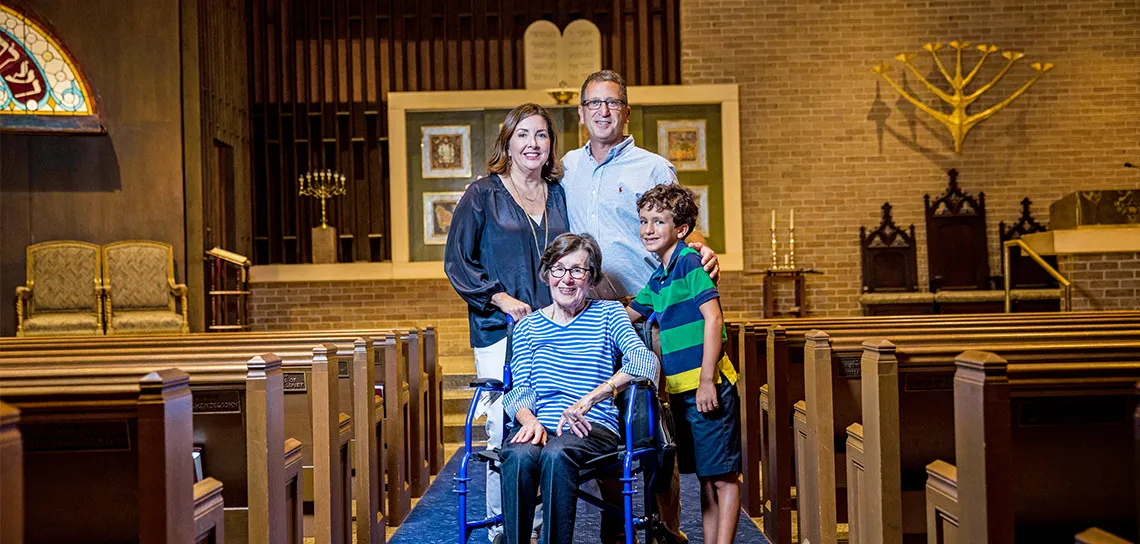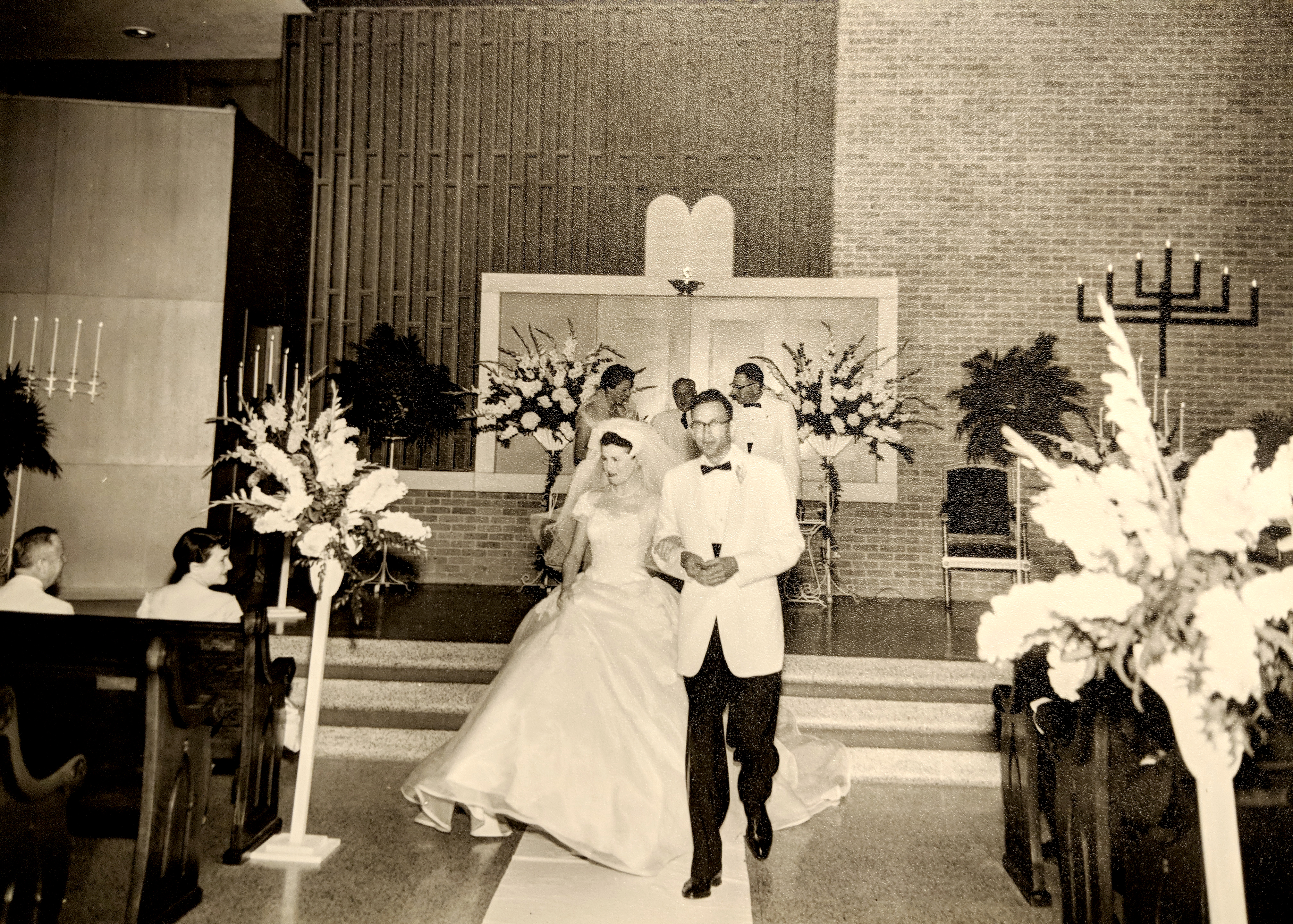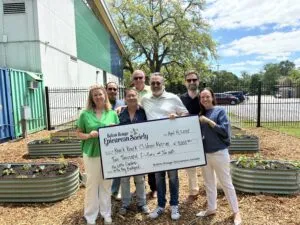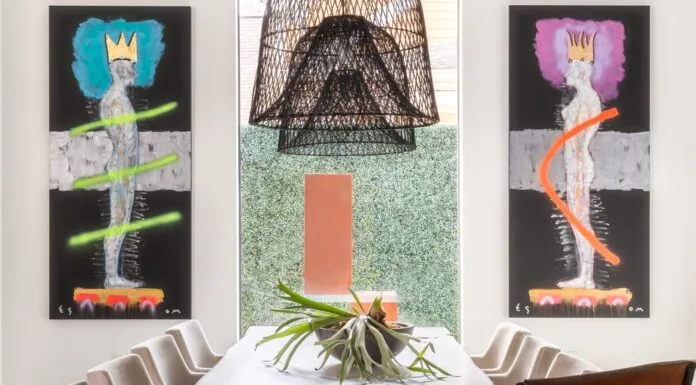
Congregation B’Nai Israel celebrates 160 years
On Insa Sternberg’s first night in America in January 1937, a group of women led her and her family through the streets of downtown Baton Rouge to Temple B’nai Israel. They entered the temple and were introduced to families there and shown a seat. In this strange new world, Insa remembers being captivated by the choir singing from the temple’s loft. “I had never seen such a thing before,” she says.
Eighty-one years later, now Insa Abraham, she says she remembers that day as if it were yesterday. Having just fled from Nazi Germany before that memorable melodic experience, it was the first time her Jewish family was able to worship in a temple together.
“At that point in Germany, it was too dangerous for us to go out to temple,” she says. “But the people of Baton Rouge and Temple B’nai were so very, very welcoming to us. They tried to help us in any way they could. They never made us feel like we were strangers.”
Beginning in 1858, Baton Rouge has been the home to an ever-growing, ever-thriving community of Jewish people from all parts of the world. Known in its early days as the Hebrew Congregation of the City of Baton Rouge, and later as Congregation Shaare Chesed (Gates of Loving Kindness), Congregation B’nai Israel is celebrating its 160th anniversary this year.

While many other historic Southern congregations have diminished to only a few families over the years, Baton Rouge’s B’nai Israel is flourishing with around 200 families in the present congregation. “The Jewish community is a proud community,” says Rabbi Jordan Goldson. “And this is a proud congregation. They want it to thrive and survive.”
Goldson says the difficulties in maintaining a congregation largely come with the changing of times. “People don’t tend to stay in one place as much anymore,” he says. “They leave and search out new opportunities.” And yet, Baton Rouge’s often-noted “big small town” character has fostered multiple generations of families in this Jewish congregation.
For instance, Insa Abraham’s 10-year-old grandson Leo often converses with his grandmother about all he learns in Sunday School as part of the same congregation that welcomed her to America all those years ago. “We say the prayers and I learn about the Hebrew alphabet,” Leo says. “And I have lots of fun!”
Part of Congregation B’nai Israel’s longevity, theorizes Goldson, is its willingness to adapt with the needs of its people. Following the Reform movement begun in Germany in the early 19th century, the Jewish community in Baton Rouge has always been one of acceptance and liberality. “When people came here, that approach allowed them to still be Jewish and to be proud of it, to keep their customs, but not have an obligation to the same stringency as the traditional Jews in Europe,” explains Goldson. “People were able to assimilate more and become a part of the rest of the community as well.”
And thus, Jews like Insa Abraham’s father Erich Sternberg, longtime owner of the Baton Rouge fixture Godchaux’s department store, made enormous contributions to the city of Baton Rouge. “Many of our leaders were intimately involved in building Baton Rouge to be what it is today,” says Goldson. “And I think we’ve benefitted from an environment that was right for that.”
Goldson says Jews have had a tendency throughout history to be active in their communities. “Going all the way back to Abraham, it was our mandate to be a light unto the nations, and we take that seriously,” he says. “Spread goodwill, kindness, compassion, help, caring and love, and try to make this world a better place.”
The evolution of Jewish tradition continues within Congregation B’nai Israel, which is today classified as a Classical Reform congregation. “We really want to explore what it means to be a Jew today,” says Goldson. “We’re working on a strategic planning process right now that will help us to better integrate technology into our traditions. It’s actually an incredibly exciting and dynamic time right now. There’s a lot of great energy!”
In celebration of the congregation’s 160th anniversary, the temple is hosting a series of special events between now and the end of 2018. On September 30, there will be a cocktail reception, cookbook signing and question-and-answer session with Saba New Orleans Chef Alon Shaya, a native of Israel. Bubbe’s Kitchen & Zayde’s Bar: A Jewish Food Festival will take place October 21, featuring traditional dishes from the congregation’s own family recipes. Finally, on December 7, a special Hanukkah Party, open only to temple members, will include a Shabbat service and live music by the New Orleans Klezmer Allstars. Tickets to the September and October events will be open to the public for purchase starting September 4.
“This is my 10th year leading this congregation,” says Rabbi Goldson. “It’s been such a blessing for me as a rabbi to see the persistent desire of this congregation to do its best for its families, and to be a part of that continuity. I’m eagerly looking forward to the next ten!”













